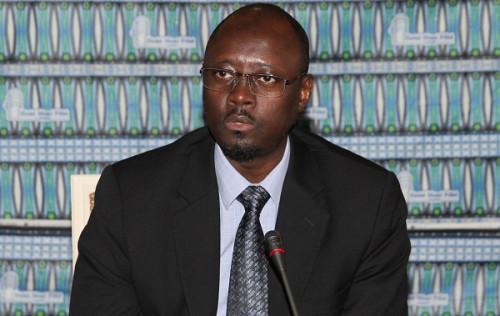
CEMAC : Credit institutions required to transmit daily transaction data to the BEAC

(Business in Cameroon) - Starting from 2020, credit institutions operating within the CEMAC region will henceforth be subjected to stricter regulations concerning the transmission of data on their financial transactions to the central bank BEAC.
On Jan 3, Abbas Mahamat Tolli (photo), the Governor of the Bank of Central African States (BEAC), signed an instruction in that regard. This instruction plans for sanctions for credit institutions that wouldn’t transmit data on their financial transactions to the BEAC or send erroneous information.
According to the Central Bank's instruction, credit institutions must ensure before the end of the day that all their daily data have been matched with those of counterparties. They must then transmit the data to the Beac. The data in question concern transactions on banknotes and currency carried out in FCFA and in foreign currencies; interbank transactions, including those carried out between credit institutions of the same group; transactions on negotiable debt securities; fiduciary transactions against cover; transactions with public treasuries; transactions on other securities; and assistance expected from the Central Bank.
“Any unmatched statement by a credit institution, whether as a result of inconsistent information or of an omission to transmit data from the counterparty, shall be deemed to be false. In both cases, the fault lies with the two parties involved, who are exposed to the application of the administrative sanctions provided for in this instruction,” the BEAC warns.
Failure to comply by the provisions of these directives exposes the credit institution concerned to administrative monetary penalties, consisting of periodic penalty payments. The latter is determined on the basis of a daily lump sum depending on the number of delayed days or false declaration as follows ; XAF50,000 for the first fifteen days, XAF100,000 for the following fifteen days and XAF30,000 thereafter.
To ensure the conformity of the declarations, the BEAC reserves the right to carry out plausibility checks with credit institutions. Plausibility checks may be unannounced or may be carried out after notification to the credit institution.
However, before imposing a sanction, the national management of the country of the establishment shall notify the credit institution concerned of the non-compliance found and the corresponding sanction. Penalty payments shall be recovered for the benefit of BEAC by automatic debit from the credit institution's account opened in the books of the national management.
Sylvain Andzongo
Mags frontpage
- Most read 7 days
- shared 1 month
- read 1 month






























